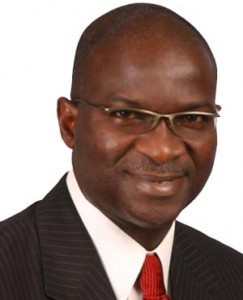


Gov. Babatunde Fashola of Lagos State Tuesday called for the removal of Section 285, Sub-section 6, from the Constitution of the Federal Republic of Nigeria for failure to improve the electoral process.
Fashola, stated this in Calabar, Cross River State in a paper he presented Tuesday at the on-going 53rd Annual General Conference of the Nigerian Bar Association at Tinapa Resort. Section 285 sub-section 6 of the 1999 constitution stated that “An election tribunal shall deliver its judgment in writing within 180 days from the date of the filing of the petition’’.
According to him the relevant section has proved not to have value in improving the electoral process and compromised justice as well as the right to fair hearing.
“My recommendation is simple. Section 285 (6) of the Constitution must be deleted for no other reason than the fact that it has proven to have no utilitarian value in improving the electoral process and the fact that it compromises justice and the right to a fair hearing . Following from this first recommendation I must reiterate that the constitution of election tribunals and the trial of election petitions are not stand alone process or procedures.
“They are part of the entire electoral process starting with the voters’ registration, actual voting, collation and announcement of results, swearing in of elected officials and the resolution of election disputes, which is what Section 285 (6) is all about.
Fashola said that it was important to ensure credibility of the processes that precede the resolution of election conflicts.
“In order words, our voters’ registration processes, our voting processes and result collation and announcement must be open and transparent, not merely by our say so, but by the experience of those who interact with it.
“We must get to the situation where, even before the formal announcement by the electoral umpire, the results are already known and accepted by those who participated, so that the umpire’s declaration only ratifies what is already known and accepted,’’ he said.
“If that is done we will first be reducing the number of disputed elections and petitions and enriching our electoral processes and institutions. While technology and the availability of electricity will be critical to this undertaking, they will not on their own be sufficient. We must also provide transport infrastructure to make the logistics of distribution of electoral materials more efficient,’’ he added.
He also said it was necessary to punish erring electoral offenders well in advance of the 2015 elections in order to demonstrate the resolve to discourage what undermined what he called collective national development.







